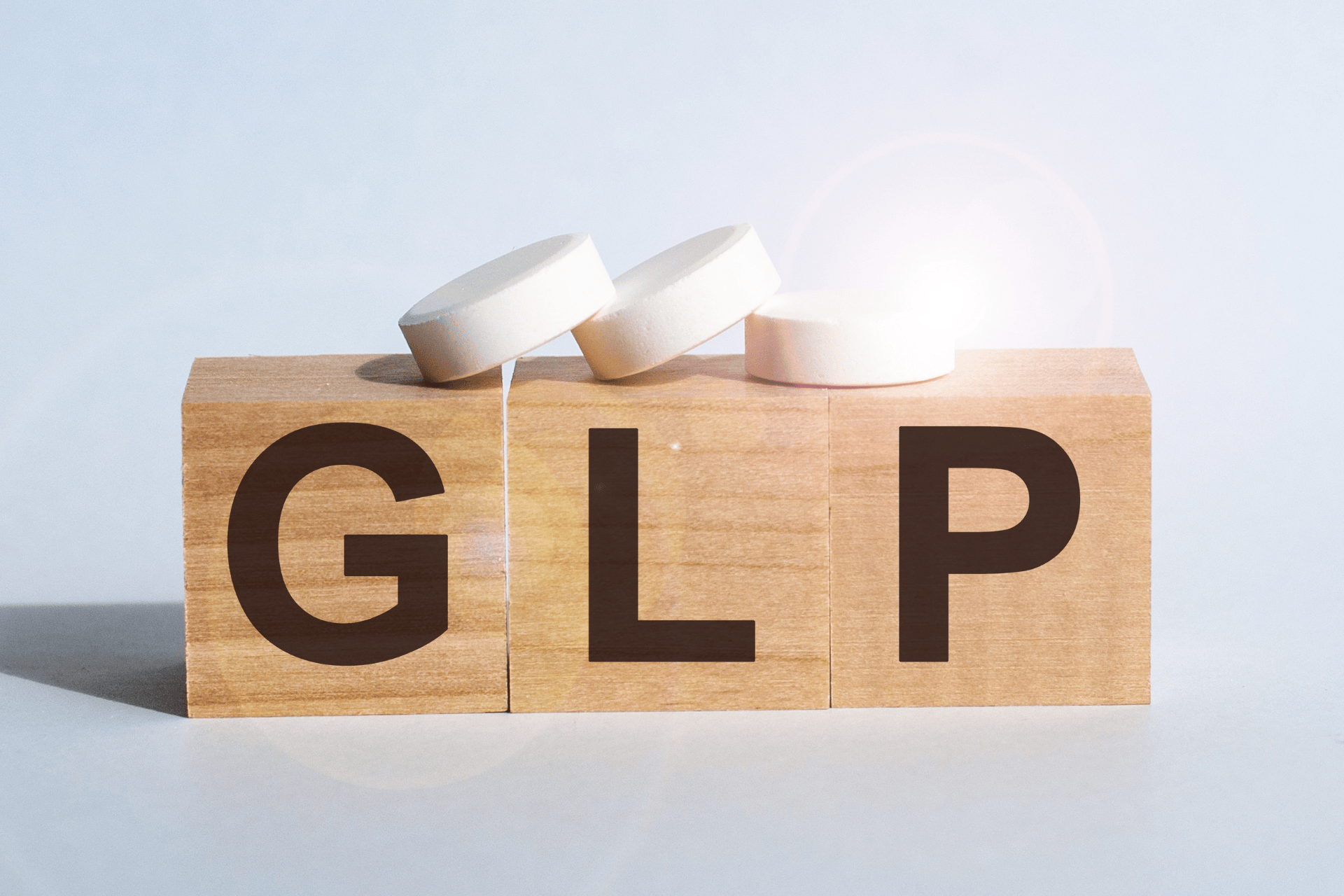Grey Market GLP1 - Is It Safe?
Understanding GLP1 Medications and Their PopularityGLP1 receptor agonists have become a significant breakthrough in the treatment of type 2 diabetes and obesity. These [...]
Read More
Medically reviewed by Alan Lucks | MD, Alan Lucks MDPC Private Practice - New York on October 24th, 2025.
Counterfeit semaglutide and tirzepatide often contain incorrect concentrations—some with zero active ingredient, others with dangerously high doses that can trigger severe hypoglycemia requiring emergency treatment.
Unregulated compounding pharmacies may use contaminated equipment or expired ingredients, leading to bacterial infections at injection sites or systemic toxicity from degraded peptides.
Without proper medical screening, patients with contraindications like personal/family history of medullary thyroid cancer or multiple endocrine neoplasia syndrome type 2 face serious complications.
These medications require careful dose escalation over 16-20 weeks and monitoring for pancreatitis symptoms—grey market suppliers provide no titration guidance or safety protocols.
Legitimate telehealth consultations cost under $40 and include comprehensive medical history review, contraindication screening, and ongoing monitoring that grey market purchases completely bypass.
GLP1 receptor agonists have become a significant breakthrough in the treatment of type 2 diabetes and obesity. These medications work by mimicking the glucagon-like peptide-1 hormone, which helps regulate blood sugar levels, reduce appetite, and promote weight loss. Due to their effectiveness, GLP1 drugs such as semaglutide and liraglutide have surged in demand, especially among those seeking weight management solutions.
However, the rising popularity has also led to a surge in demand that traditional pharmaceutical supply chains sometimes struggle to meet. This gap has given rise to a grey market for GLP1 medications, where these drugs are sold outside of regulated channels. While this might seem like an accessible option for some, it raises serious questions about safety, authenticity, and proper medical oversight.
Consumers interested in GLP1 treatments should be aware of the risks associated with obtaining these medications from unofficial sources. Understanding the potential dangers and benefits is crucial before making any decisions about their use.
Moreover, the mechanism of action of GLP1 medications extends beyond just appetite suppression and glucose regulation. These drugs also promote insulin secretion in response to meals and slow gastric emptying, which can contribute to a feeling of fullness after eating. This multifaceted approach not only aids in weight loss but also helps in stabilizing blood sugar levels, making it a valuable tool for those managing diabetes. Research has shown that patients using GLP1 receptor agonists often experience significant improvements in their overall metabolic health, which can lead to a reduced risk of cardiovascular disease—a common complication associated with diabetes and obesity.
As the medical community continues to explore the full potential of GLP1 medications, ongoing studies are examining their long-term effects and benefits. Some researchers are investigating their potential use in treating other conditions, such as non-alcoholic fatty liver disease and even certain types of cancer. This expanding horizon of GLP1 applications not only highlights the versatility of these drugs but also underscores the importance of using them under the guidance of healthcare professionals to ensure safe and effective treatment tailored to individual health needs.
 What Is the Grey Market for GLP1 Drugs?
What Is the Grey Market for GLP1 Drugs?The term "grey market" refers to the trade of goods through distribution channels that are legal but unofficial, unauthorized, or unintended by the original manufacturer. In the context of GLP1 medications, this often means purchasing drugs from overseas suppliers, online marketplaces, or unverified vendors without a prescription or medical supervision.
While these sources might offer lower prices or easier access, the quality and safety of the drugs cannot be guaranteed. Unlike regulated pharmacies and healthcare providers, grey market sellers do not have to comply with stringent manufacturing standards, proper storage, or accurate labeling. This can result in counterfeit, expired, or contaminated products reaching consumers.
Moreover, self-medicating with GLP1 drugs without professional guidance can lead to serious health complications, as these medications require careful dosing and monitoring to avoid side effects such as nausea, pancreatitis, or hypoglycemia.
Additionally, the grey market for GLP1 drugs can create a significant public health concern. The lack of oversight means that individuals may unknowingly consume substances that have not been properly tested or vetted for safety. This is particularly troubling for those with pre-existing health conditions or those who are taking other medications, as interactions could exacerbate their health issues. The potential for adverse reactions increases when patients are not receiving adequate medical advice or follow-up care, which is essential for managing the complexities associated with GLP1 therapies.
Furthermore, the rise of the grey market can undermine legitimate pharmaceutical companies and healthcare systems. When patients turn to these unregulated sources, it not only affects their health but also impacts the overall market for GLP1 drugs. Pharmaceutical companies invest heavily in research, development, and compliance with regulatory standards to ensure the safety and efficacy of their products. The grey market can diminish the perceived value of these efforts, leading to potential financial losses and reduced incentives for innovation in drug development. As awareness grows about the risks associated with grey market purchases, it becomes increasingly important for consumers to understand the implications of their choices and the importance of sourcing medications through legitimate channels.
One of the most significant risks of purchasing GLP1 drugs from the grey market is the uncertainty surrounding the drug’s authenticity. Counterfeit medications may contain incorrect dosages, harmful additives, or no active ingredients at all. This not only undermines the treatment’s effectiveness but can also pose severe health hazards.
Without proper quality control, these drugs may also be stored or shipped under conditions that degrade their potency, further compromising safety and efficacy.
GLP1 medications require a prescription and ongoing medical supervision to ensure safe and effective use. Doctors monitor patients for side effects, adjust dosages, and evaluate treatment progress. When patients bypass this process by purchasing drugs from the grey market, they risk improper dosing, dangerous drug interactions, and delayed diagnosis of adverse reactions.
For example, someone using GLP1 drugs without medical advice might not recognize early signs of pancreatitis or other complications, which can become life-threatening if untreated.
Buying prescription medications from unauthorized sources may violate local laws and regulations. Additionally, it undermines the healthcare system’s efforts to ensure patient safety and drug efficacy. Patients should be cautious about the legal implications of purchasing grey market drugs and consider the ethical dimension of supporting unregulated markets.
For those interested in GLP1 treatments, the safest and most reliable approach is to seek medical advice through legitimate healthcare channels. Telehealth services have become an increasingly popular and convenient way to connect with licensed medical professionals who can evaluate your health needs and prescribe appropriate medications.
Doctronic.ai offers an innovative telehealth platform where patients can access affordable, 24/7 video visits with licensed doctors across all 50 states. This service combines the latest in AI-powered primary care with human medical expertise, ensuring that patients receive personalized, evidence-based treatment recommendations safely and conveniently.
By using Doctronic.ai, patients can avoid the risks associated with grey market drugs and have peace of mind knowing their treatment is supervised by qualified healthcare providers. The platform’s AI doctor also remembers your medical history to provide more personalized care over time, something that grey market purchases simply cannot offer.
Telehealth platforms such as Doctronic.ai revolutionize access to medical care by offering fast, smart, and personalized services. Unlike grey market sources, Doctronic.ai draws on the latest peer-reviewed medical research to provide accurate diagnoses and treatment plans in seconds.
Patients can have video visits with licensed doctors for less than $40, making quality healthcare affordable and accessible. This model eliminates the need to rely on unregulated sources for medications, reducing the risk of counterfeit drugs and unsafe self-medication.
Moreover, Doctronic.ai’s AI doctor remembers every visit in detail, offering limitless patience and personalized care that traditional doctors may struggle to provide due to time constraints. This ensures continuity of care and better health outcomes for patients seeking GLP1 treatments or any other medical advice.
 Grey Market GLP1 Medications
Grey Market GLP1 MedicationsThe grey market for GLP1 drugs may seem like an attractive option due to lower costs or easier access, but it carries significant risks that can jeopardize your health. Unverified drug quality, lack of medical supervision, and legal concerns make purchasing from these sources unsafe and potentially harmful.
For anyone considering GLP1 therapy, the best course of action is to consult licensed healthcare professionals through trusted platforms such as Doctronic.ai. This ensures you receive safe, effective, and personalized care based on the latest medical knowledge.
Investing in your health through regulated channels not only protects you from the dangers of counterfeit medications but also provides ongoing support and monitoring for the best possible outcomes.
Don't compromise on your health by navigating the grey market for GLP1 medications. Embrace the innovation and safety of Doctronic, the #1 AI Doctor, and get the most personal care imaginable. With over 10 million users and growing, our AI-powered platform offers free, instant medical advice and affordable telehealth services in all 50 states. Benefit from our AI's limitless patience and ability to remember every detail of your medical history. Skip the line. Talk to an AI Doctor Now, for free.
Grey market versions lack the quality controls and medical oversight essential for safe use of these powerful medications, creating risks that far outweigh potential cost savings. Licensed providers ensure proper screening, dosing protocols, and safety monitoring that can prevent serious complications. If you're considering these treatments, Doctronic can connect you with qualified physicians for safe, legal access.
Understanding GLP1 Medications and Their PopularityGLP1 receptor agonists have become a significant breakthrough in the treatment of type 2 diabetes and obesity. These [...]
Read More